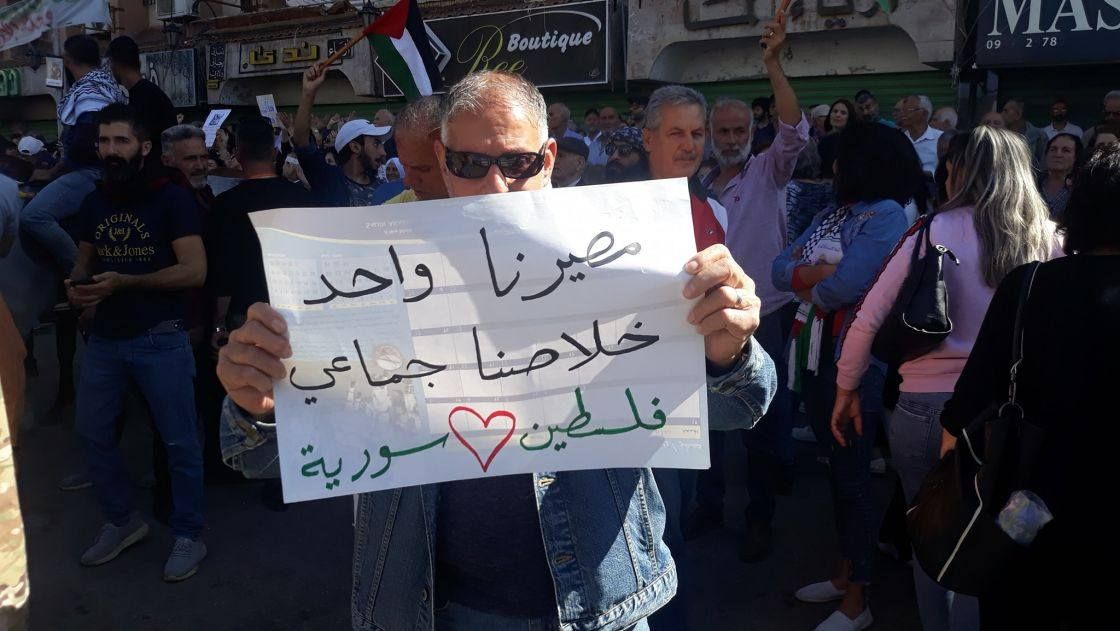- Editorials
- Posted
Kassioun Editorial 1152: The “Flood” Brings the Syrian Solution Closer
The al-Aqsa Flood, and the subsequent Zionist aggression that continues to this day, has occupied the entire political and media attention space in our region, and to some extent in the entire world, for more than two months. This is expected because this file has great importance and impacts on all local, regional, and international files.
Although the al-Aqsa Flood temporarily froze all the files that were on the table, including those related to Syria, at the same time it has rearranged them and their coordinates in a more positive direction and more amenable to actual solutions.
What has happened and is happening over the past two months has begun to produce immediate results on the American-Zionist weight in the entire region, and towards reducing this weight and reducing the Americans’ ability to obstruct and sabotage. This trend will be further bolstered as the battle progresses.
As for Syria, it is no secret that two major projects are competing on its territory. One project is pushing towards the actual implementation of the political solution through UNSC Resolution 2254 and implicitly towards the reunification of Syria’s territory and people and the expulsion of foreign forces therefrom. This project is in the interest of Astana, China, and key Arab countries, and for which the Syrian-Turkish settlement has become the main gateway because of its importance in breaking the Western economic blockade and sanctions on Syria.
In this context, it is useful to point out what the Russian special envoy to Syria, Alexander Efimov, said in an interview with Syrian newspaper al-Watan a few days ago. Efimov stressed that: “Restoring relations between Damascus and Ankara is one of the important factors in the Syrian settlement, and we are convinced that resuming the good-neighborly relations that are based, of course, on respect for Syria’s sovereignty and territorial integrity, will not only have a positive impact on the situation in Syria, but will also contribute to the comprehensive improvement of the situation in the entire region”.
In parallel with this statement, it is also useful to recall the statement of the UN Special Envoy, Geir Pedersen, on Sunday, December 10, where he said: “For the sake of a settlement in Syria, a number of issues must be raised, including the issue of the withdrawal of Turkish and American forces, the issue of the Kurdish units, and sanctions”. This statement implies that the horizon for a sustainable solution has begun to seriously emerge, based on the new coordinates in the region.
The second and competing project is the American-Zionist one, which is disguised under the slogan “step-for-step”. This project is American-led behind the scenes in cooperation with those who reject the political solution from the Syrian sides. This project aims to perpetuate the de facto division, prevent any change that is in the interest of the Syrians, prolong the crisis, and get Syria to a state of permanent partition. In parallel, this project aims to push Syria towards normalization with the Zionists.
The al-Aqsa Flood, although its final results have not yet fully crystallized, has so far produced important results in the context of the conflict in Syria. It has reduced the weight of the Americans and their partners, and increased the rapprochement between Astana and key Arab countries, and thus boosted the chances of moving towards a political solution without and despite the West, and on the basis of the full implementation of UNSC Resolution 2254.
In other words, the files on the Syrian table before the al-Aqsa Flood could have taken a few formal steps during the past two months, but they would have remained incomplete and susceptible to sabotage. On the other hand, despite the formal freezing of steps towards a solution during the past period, the possibilities of actually moving forward with steady steps towards a solution have improved after the al-Aqsa Flood.
There are now preliminary indications that the Astana Group will return to continuing its work from the point where it stopped two months ago, including work on the Syrian-Turkish settlement. Even if these indicators do not crystallize very quickly, the possibility of them irreversibly crystallizing has become more serious. Therefore, no one should be surprised that the Syrian file will return to the table soon, through Astana, and within the required direction, that is, towards a Syrian-Turkish settlement and towards the full implementation of UNSC Resolution 2254.


